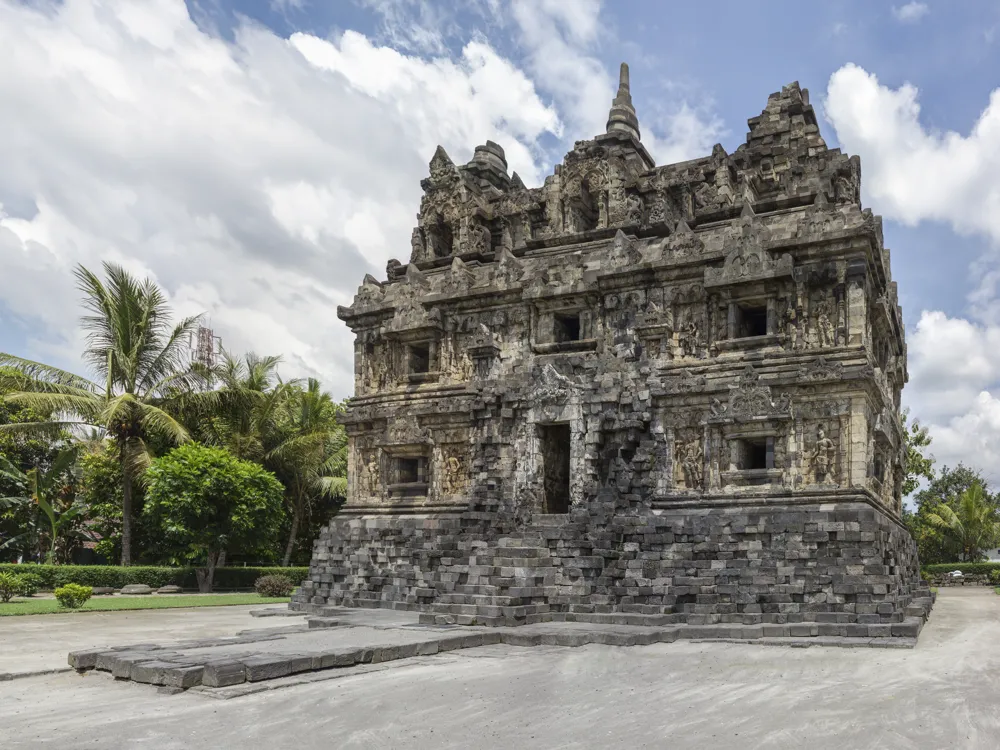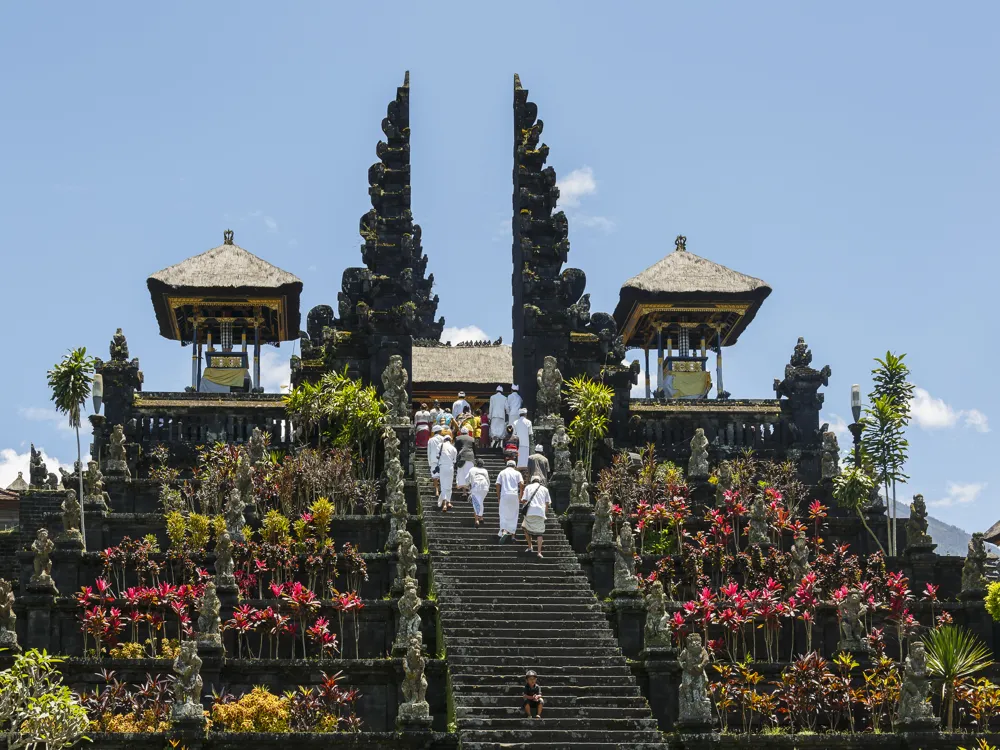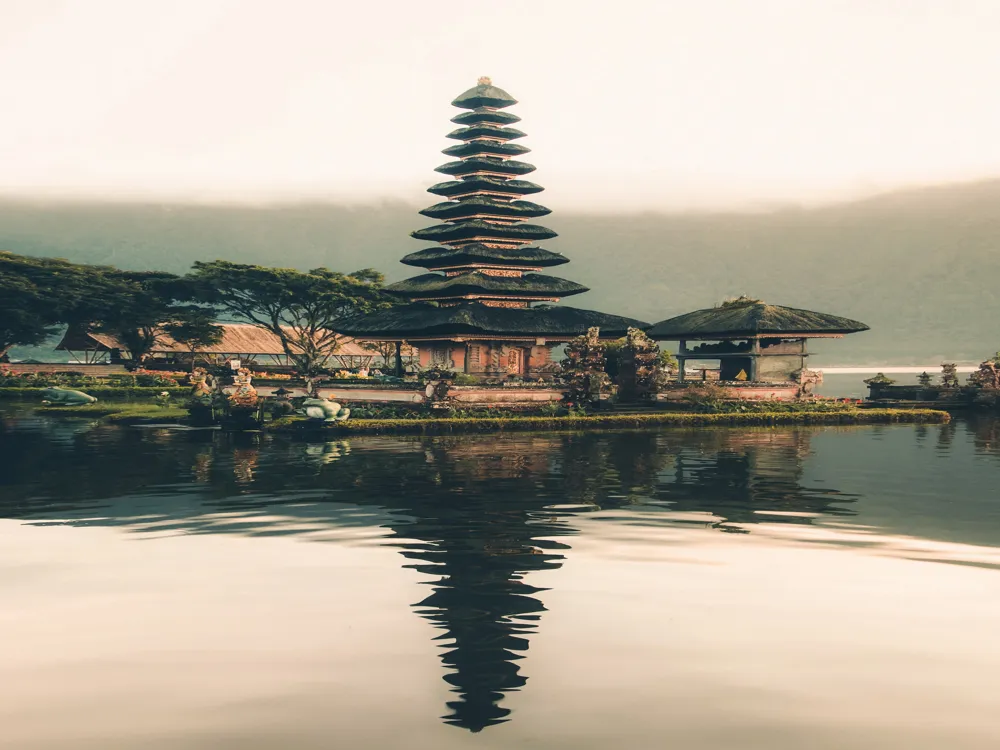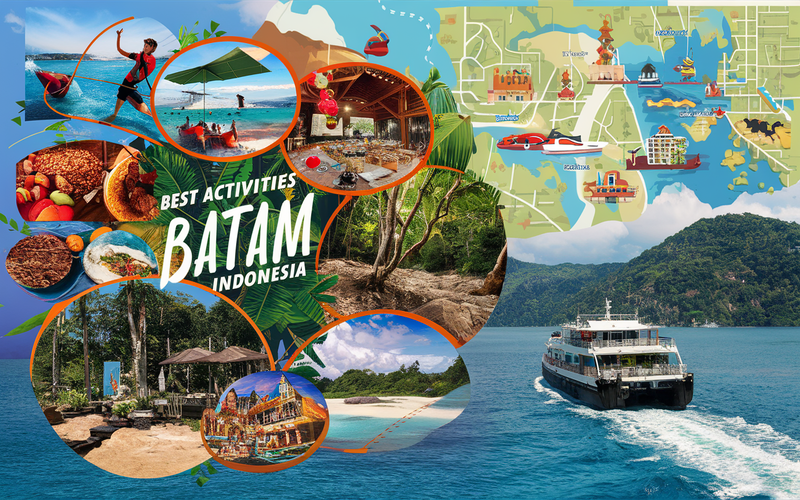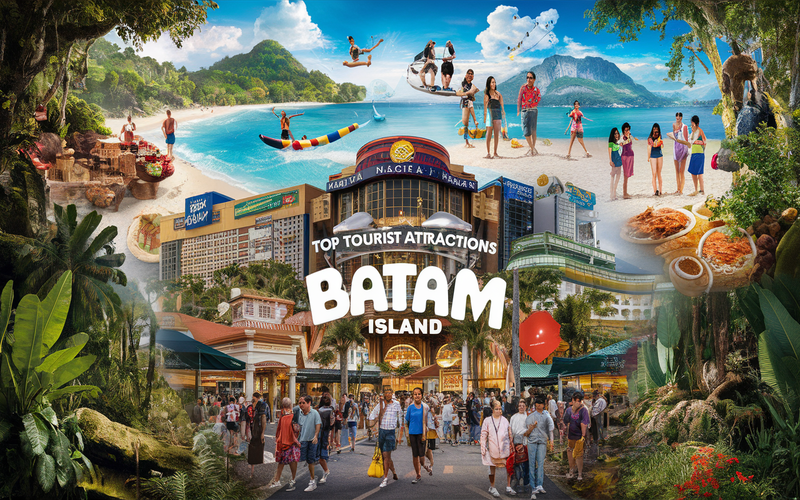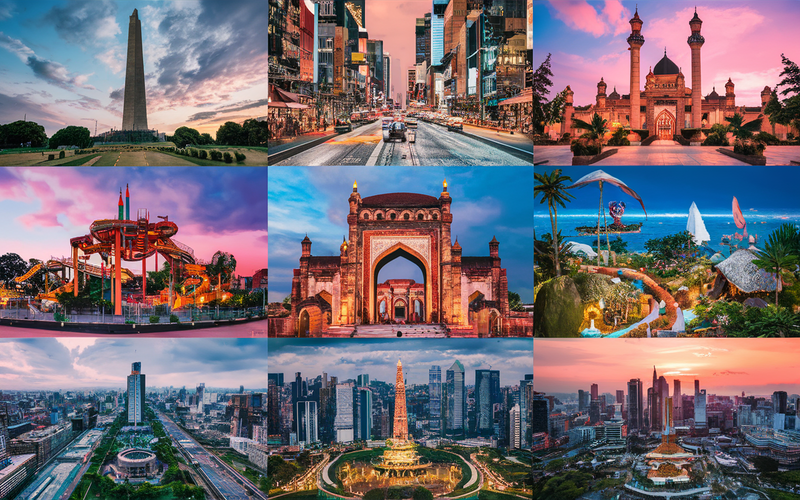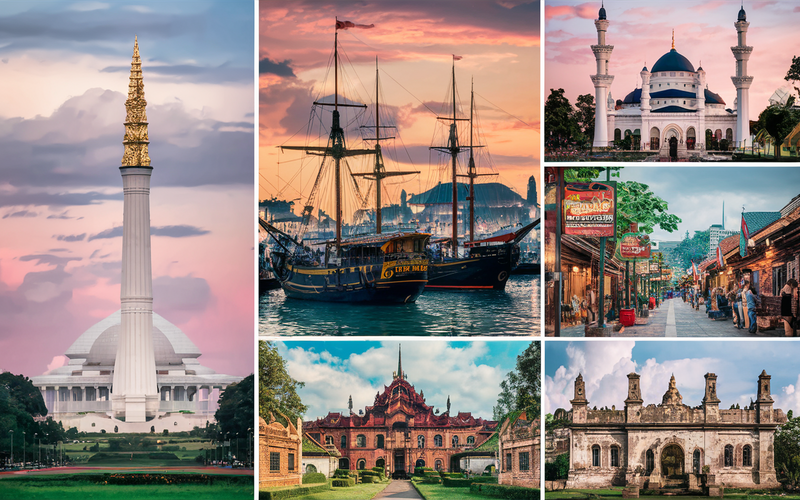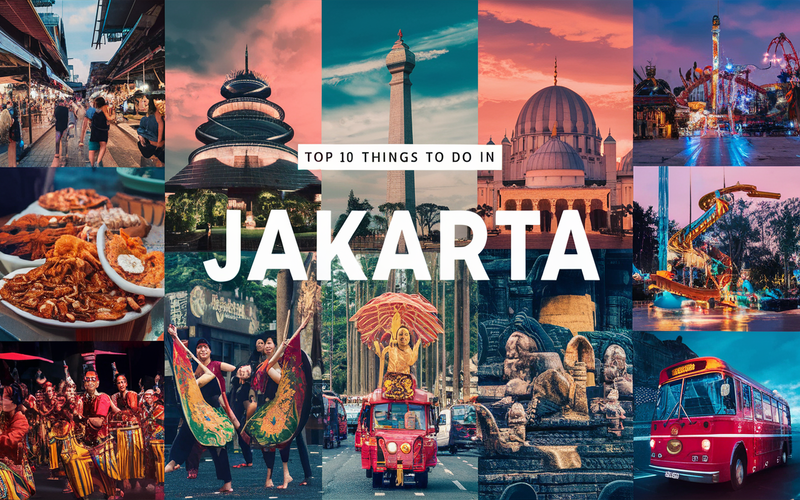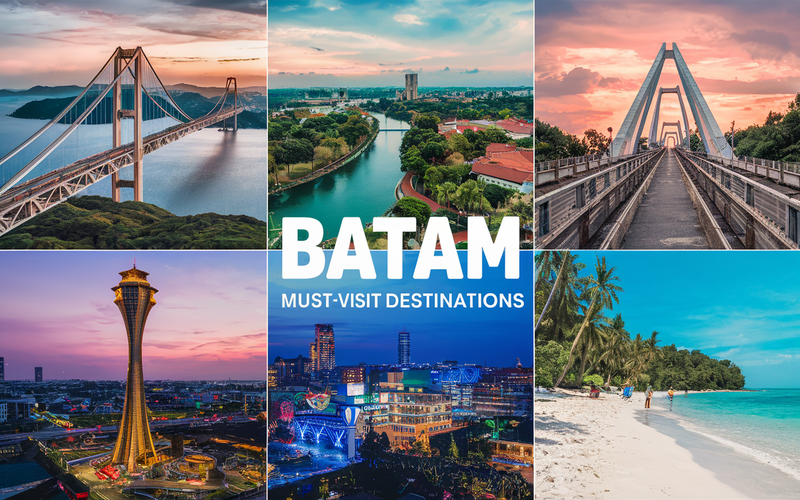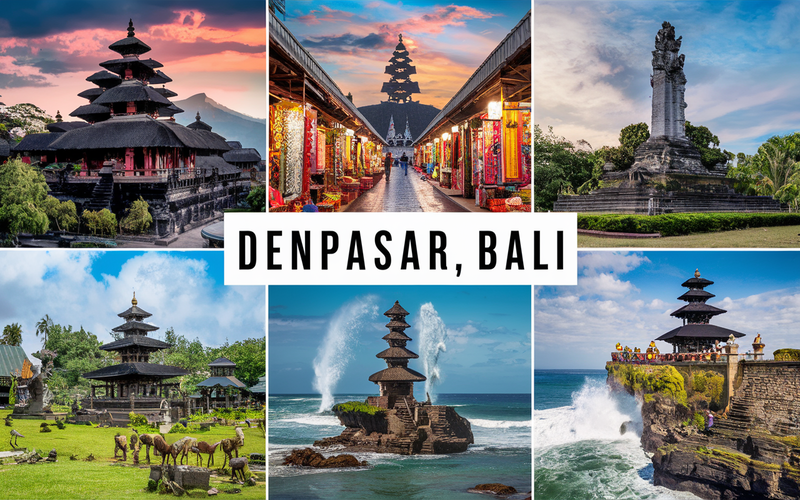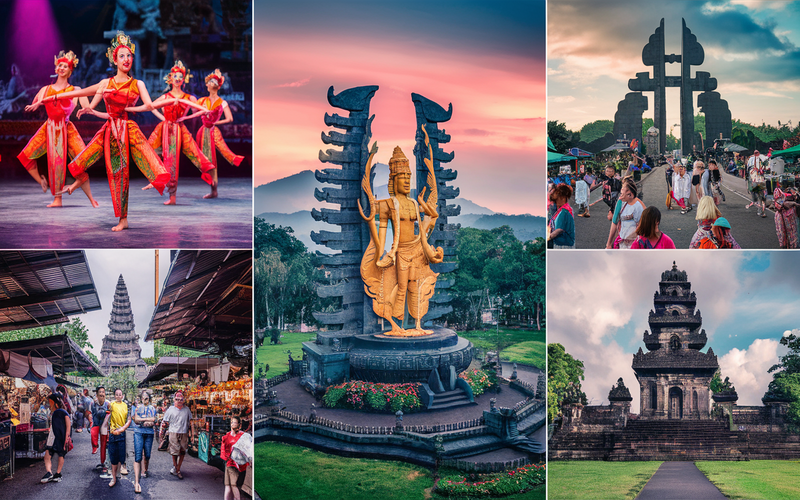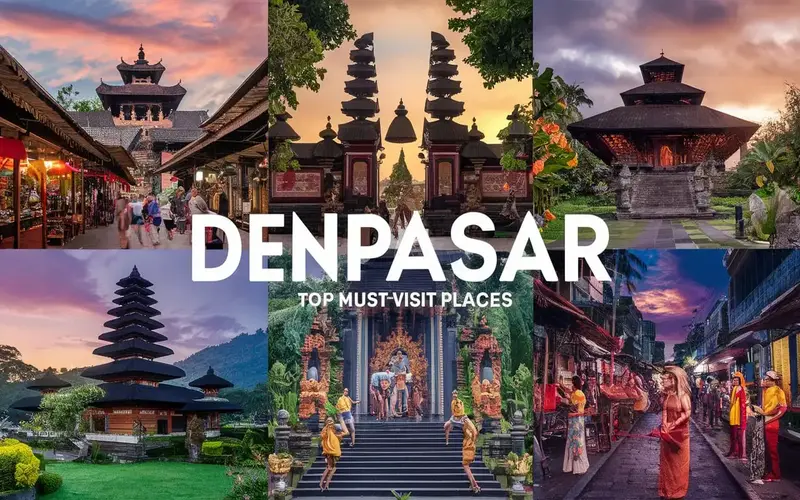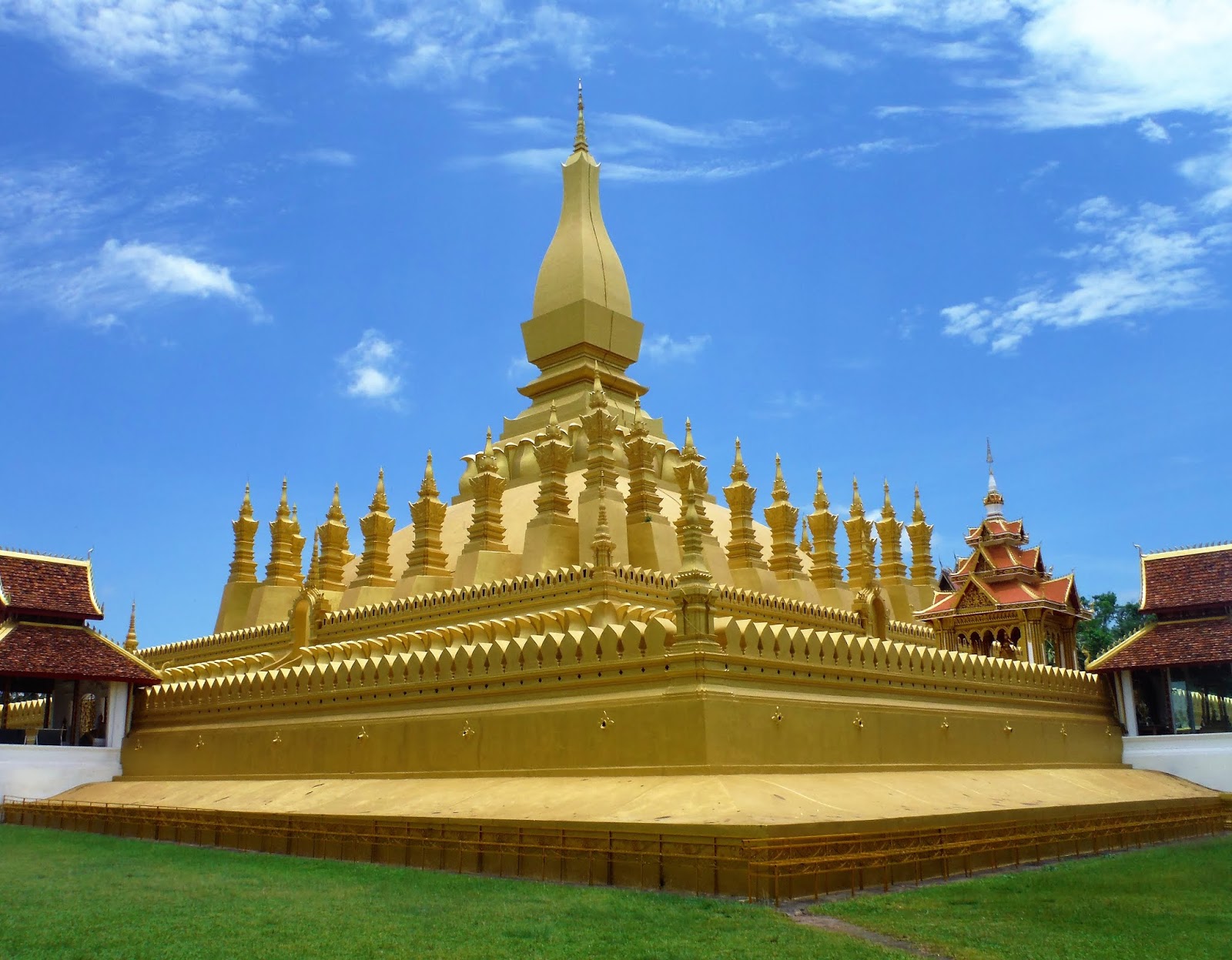Plan Your Travel To Indonesia
Indonesia Travel Essentials
Ideal Duration: 9-12 days
Currency: Indonesian Rupiah (IDR)
Best Time: April - September Read More
Budget: Budget trip: IDR 219,048 per day,
Mid-Range trip: IDR 596,827 per day,
Luxury trip: IDR 1,753,669 per day
"Where Culture Meets Nature"
Indonesia Tourism
The Southeast Asian archipelago of Indonesia is a tropical paradise with a rich cultural heritage, diversified scenery, and kind people. The capital, Jakarta, provides a vibrant metropolitan atmosphere, while Bali, which is well-known for its beaches, is a refuge for leisure and spirituality. Discover the rich woods of Sumatra, the imposing Borobudur temple in Yogyakarta, and the varied marine life in Raja Ampat. Indonesian food is varied and includes foods like rendang and nasi goreng. Experience Indonesia's breathtaking natural beauty, traditional customs, and the fascination of Southeast Asia with its rich cultural legacy, kind people, and close relationship to nature.
Must Know Before You Travel to Indonesia
- Visa and Entry Requirements: Ensure you have the right visa for your stay, as requirements can vary by nationality.
- Health Precautions: Check if vaccinations are needed and carry necessary medications, especially if you plan to explore remote areas.
- Cultural Respect: Be mindful of local customs and dress modestly when visiting temples or rural areas.
- Weather: Indonesia has a tropical climate, so pack lightweight, breathable clothing and stay hydrated.
- Currency: The Indonesian Rupiah (IDR) is the official currency, and cash is commonly used.
- Language: Bahasa Indonesia is the official language, but English is widely understood in tourist areas.
- Transport: Be prepared for diverse modes of transportation, including ferries, bemos, and ojeks (motorcycle taxis).
- Food: Enjoy the local cuisine, but be cautious about street food hygiene.
- Safety: Stay aware of your surroundings, especially in crowded areas.
- Natural Hazards: Indonesia is prone to earthquakes and volcanic eruptions, so monitor local advisories.
Tourist Places to Visit In Indonesia
Yogyakarta
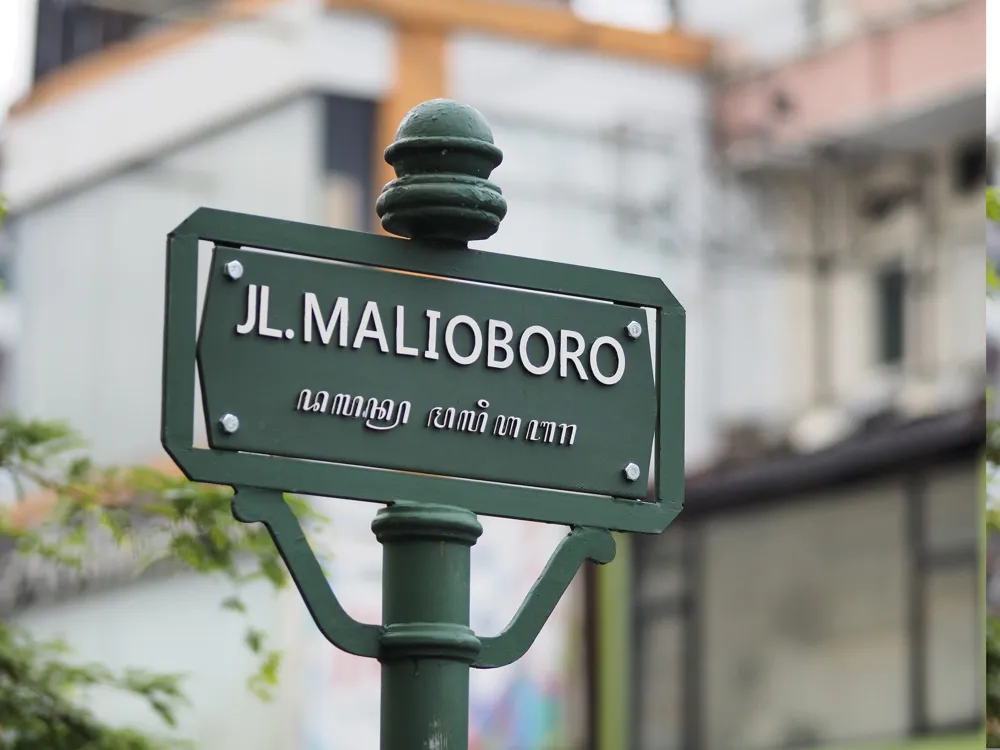
Gili Trawangan
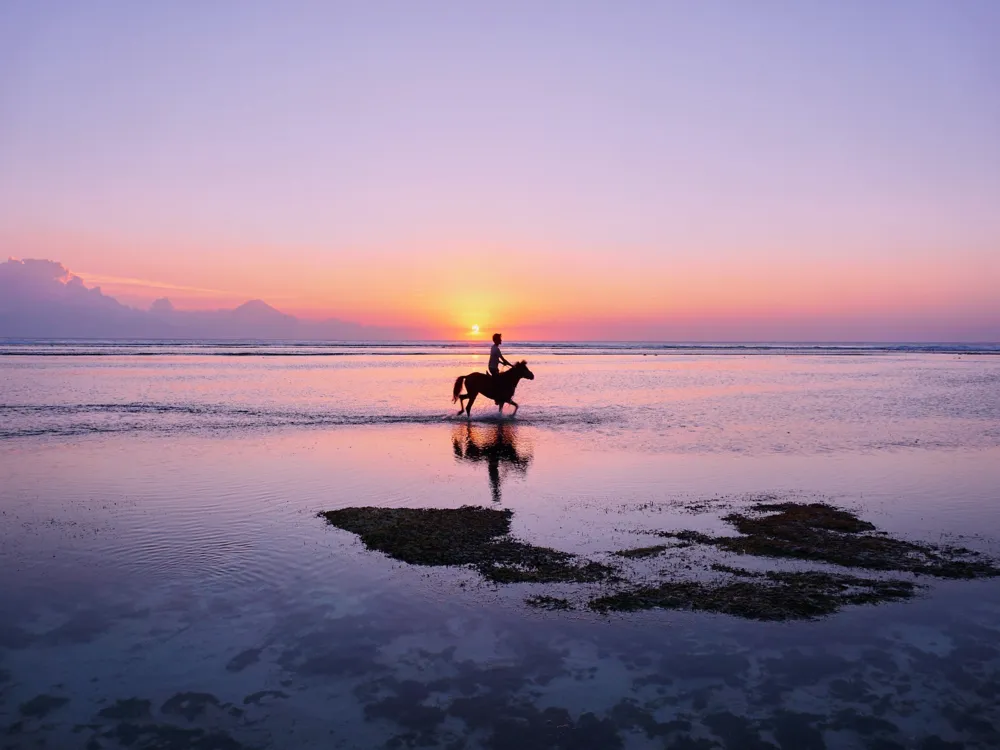
Gili Air
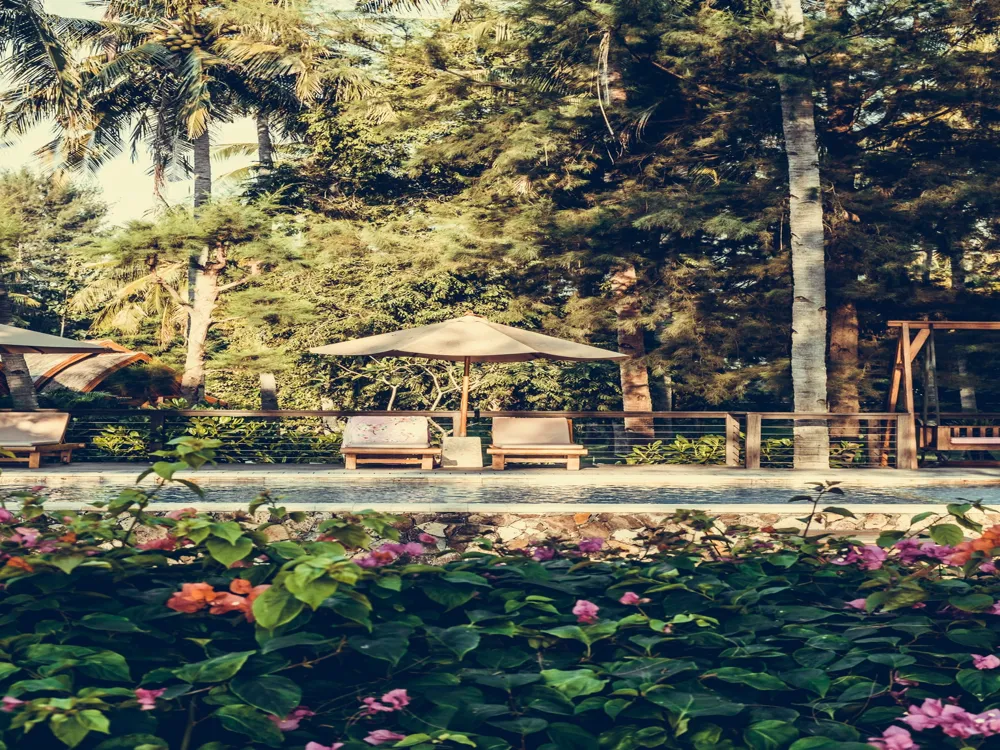
Nusa Penida
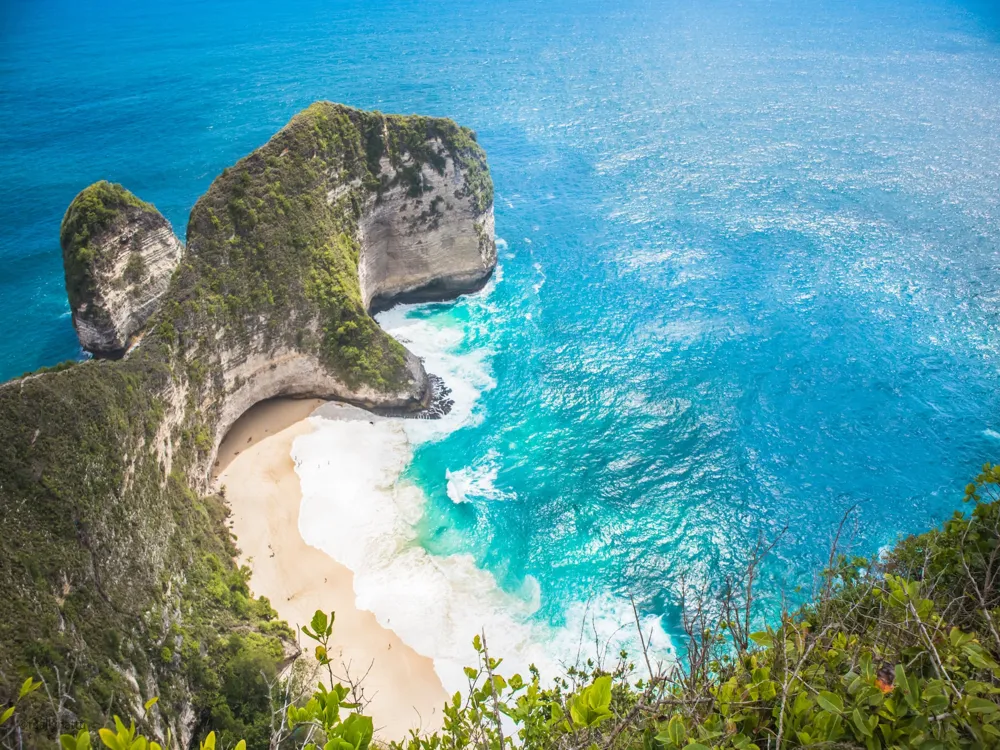
Komodo Island
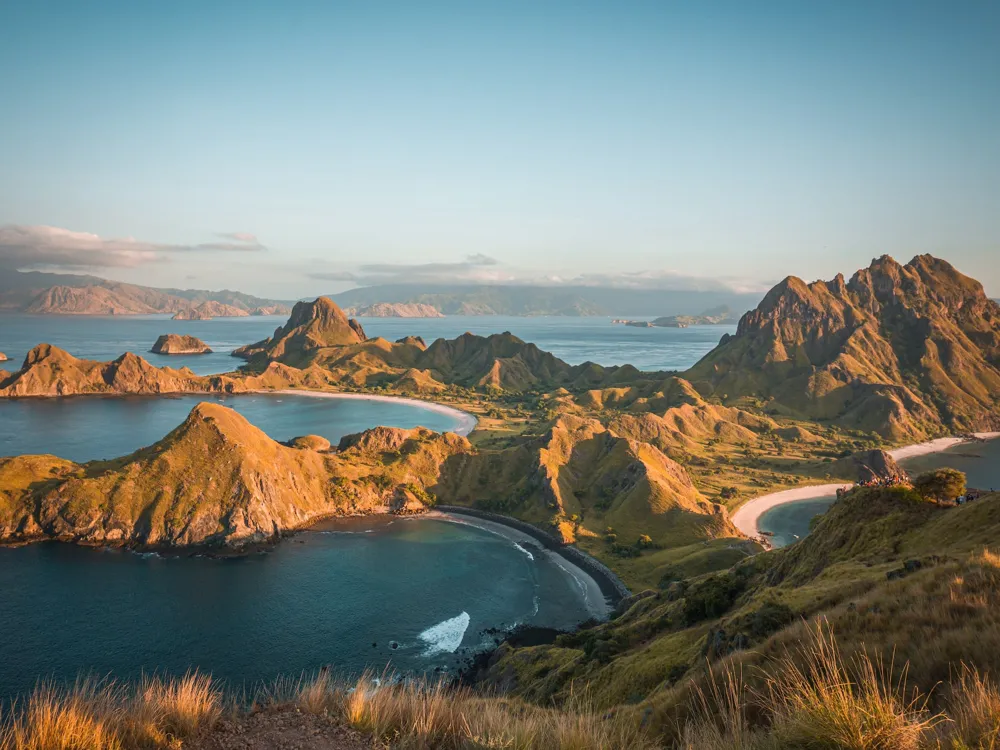
Indonesia Travel Packages
Compare quotes from upto 3 travel agents for free
View All Packages For Indonesia
More on Indonesia Travel
All collections about Indonesia
Best time to visit Indonesia
The best time to visit Indonesia is during its dry season from mid-April to September. The weather in this tropical country can be split into two seasons - dry and wet. Indonesia experiences its (Read More) wet season in the remaining months from October to mid-April. The dry season has warm, sunny and dry days that offer the perfect conditions for trekking, sightseeing or other water-related activities. May, June and September are the ideal months to visit Indonesia if you wish to combine the excellent weather of the dry season with the lack of tourist crowds. In regions like Kalimantan and Bali, the difference between the dry and wet season is not as extreme. The central Molucca islands experience contrastingly different weather conditions and make for a suitable destination if planning a trip in January. Temperatures throughout Indonesia are relatively consistent and hover around 28 degrees Celsius, irrespective of the time of the year. A surge in tourists is witnessed from mid-June to mid-September, whereas the wet season sees a drastic drop in tourist activity. wet season in the remaining months from October to mid-April. The dry season has warm, sunny and dry days that offer the perfect conditions for trekking, sightseeing or other water-related activities. May, June and September are the ideal months to visit Indonesia if you wish to combine the excellent weather of the dry season with the lack of tourist crowds. In regions like Kalimantan and Bali, the difference between the dry and wet season is not as extreme. The central Molucca islands experience contrastingly different weather conditions and make for a suitable destination if planning a trip in January. Temperatures throughout Indonesia are relatively consistent and hover around 28 degrees Celsius, irrespective of the time of the year. A surge in tourists is witnessed from mid-June to mid-September, whereas the wet season sees a drastic drop in tourist activity.
Top Stories about Indonesia Tourism
Read More on Indonesia Travel
Exchanging Money in Indonesia:
When visiting Indonesia, it's essential to exchange your currency for the Indonesian Rupiah (IDR). Money exchange facilities are widespread, including banks, currency exchange counters, and ATMs. While major credit cards are accepted in urban areas, cash is often preferred in more rural locations. Be aware of exchange rates and transaction fees to ensure you get the best value. Money changers are prevalent in tourist areas, but it's wise to double-check rates and count your money carefully. Many places accept US dollars, but it's advisable to carry some IDR for smaller purchases and off-the-beaten-path destinations.
Nightlife in Indonesia:
Indonesia offers a vibrant and diverse nightlife scene. In cities like Jakarta, Bali, and Yogyakarta, you'll find a plethora of bars, clubs, and entertainment venues. Bali, in particular, is renowned for its beachfront parties and nightlife. Enjoy live music, dance to electronic beats, or savor a drink while taking in stunning sunsets. Be sure to respect local customs and alcohol regulations, as alcohol can be pricey due to taxes. Many venues have a relaxed dress code, but some may require more formal attire. Stay safe and exercise moderation while exploring the Indonesian nightlife.
Shopping in Indonesia:
Shopping in Indonesia is a delightful experience, with something for every taste and budget. Local markets like Ubud Market in Bali and Jakarta's Jalan Surabaya are treasure troves of traditional crafts, textiles, and unique souvenirs. Modern malls are prevalent in urban areas, offering a wide range of international and local brands. Indonesian batik fabric, wood carvings, and silver jewelry make fantastic gifts. Haggling is customary in markets, but be polite and patient. Remember to check the quality and authenticity of items, especially when buying high-value art and antiques.
Festivals in Indonesia:
Indonesia is a land of cultural diversity, and its festivals reflect this rich tapestry. Witness the grandeur of Bali's Nyepi, the Day of Silence, or the colorful parades of the Jember Fashion Carnival. Experience the Hindu festivals of Galungan and Kuningan, or the Muslim celebration of Eid al-Fitr. Throughout the archipelago, you'll encounter regional events, such as the Toraja Funeral Ceremony and the Balinese Arts Festival. These festivals offer an opportunity to immerse yourself in Indonesia's traditions, with vibrant rituals, music, dance, and sumptuous cuisine.
Hygiene in Indonesia:
Maintaining hygiene standards in Indonesia is essential for a safe and healthy journey. While major tourist areas generally uphold cleanliness, some rural and remote locations may lack proper sanitation. Always carry hand sanitizer and tissues, as public restrooms may not provide them. Drink bottled water and avoid tap water to prevent waterborne illnesses. Be cautious when consuming street food, ensuring it's freshly cooked and served hot. Mosquito-borne diseases are a concern, so use repellent and wear long sleeves and pants. Overall, being mindful of personal hygiene and food safety will help you enjoy a trouble-free trip.
Tips for visiting Indonesia:
Visiting Indonesia offers a world of adventure. Embrace the warm hospitality and diverse culture, but remember to respect local customs. Dress modestly when visiting temples and religious sites. Bargain politely at markets, and be prepared for haggling. Carry small change for tips and transportation. Indonesia's traffic can be chaotic, so use reputable transport services and, if driving, exercise patience and caution. Learn some basic Bahasa Indonesia phrases for smoother communication. Stay hydrated and wear sunscreen in the tropical climate. Lastly, explore beyond the tourist hubs to discover the authentic beauty of this captivating nation.
Food of Indonesia:
Indonesian cuisine is a tantalizing fusion of flavors and influences. Nasi Goreng, a fragrant fried rice dish, and Nasi Padang, an array of spicy dishes, are staples. Sate skewers, rendang beef, and gado-gado salad showcase the country's diverse culinary landscape. Savor street food delights like bakso meatball soup and martabak-stuffed pancakes. Tempeh and tofu feature prominently, making Indonesian food a vegetarian-friendly choice. Don't miss the aromatic rendang curry or the fiery sambal chili sauce. Indonesian cuisine caters to all tastes, from mild to spicy, and is an integral part of the nation's vibrant culture.
Photos of Indonesia
All Country Photos Indonesia
Popular Questions And Answers on Indonesia
What is the capital of Indonesia?
The capital of Indonesia is Jakarta. It is the largest city in the country and serves as its political, economic, and cultural center.
What is the official language of Indonesia?
Bahasa Indonesia is the official language of Indonesia. It is a standardized form of Malay and is widely spoken throughout the country.
How many islands make up Indonesia?
Indonesia is an archipelago comprising over 17,000 islands. The exact number of islands can vary depending on the tide and other factors.
What is the currency of Indonesia?
The official currency of Indonesia is the Indonesian Rupiah (IDR).
What are the popular tourist destinations in Indonesia?
Some of the popular tourist destinations in Indonesia include Bali, Yogyakarta, Jakarta, Komodo Island, Borobudur Temple, and Raja Ampat for its stunning coral reefs.
What is the climate like in Indonesia?
Indonesia has a tropical climate with high temperatures and humidity year-round. It has a wet season from November to March and a dry season from April to October.
What is the traditional Indonesian cuisine?
Indonesian cuisine is diverse and includes dishes like Nasi Goreng (fried rice), Rendang (spicy beef stew), Satay (skewered and grilled meat), and Gado-Gado (vegetable salad with peanut sauce).
Is Indonesia a Muslim-majority country?
Yes, Indonesia has the largest Muslim population in the world, but it is a religiously diverse country with significant Hindu, Christian, and Buddhist communities.
What are the main industries in Indonesia's economy?
Indonesia's economy is driven by industries such as agriculture, manufacturing, mining, and tourism. It is one of the world's largest producers of palm oil.
What are some traditional Indonesian arts and culture?
Traditional Indonesian arts and culture include Batik, Wayang Kulit (shadow puppetry), Gamelan music, and various dance forms like the Javanese and Balinese dances.

